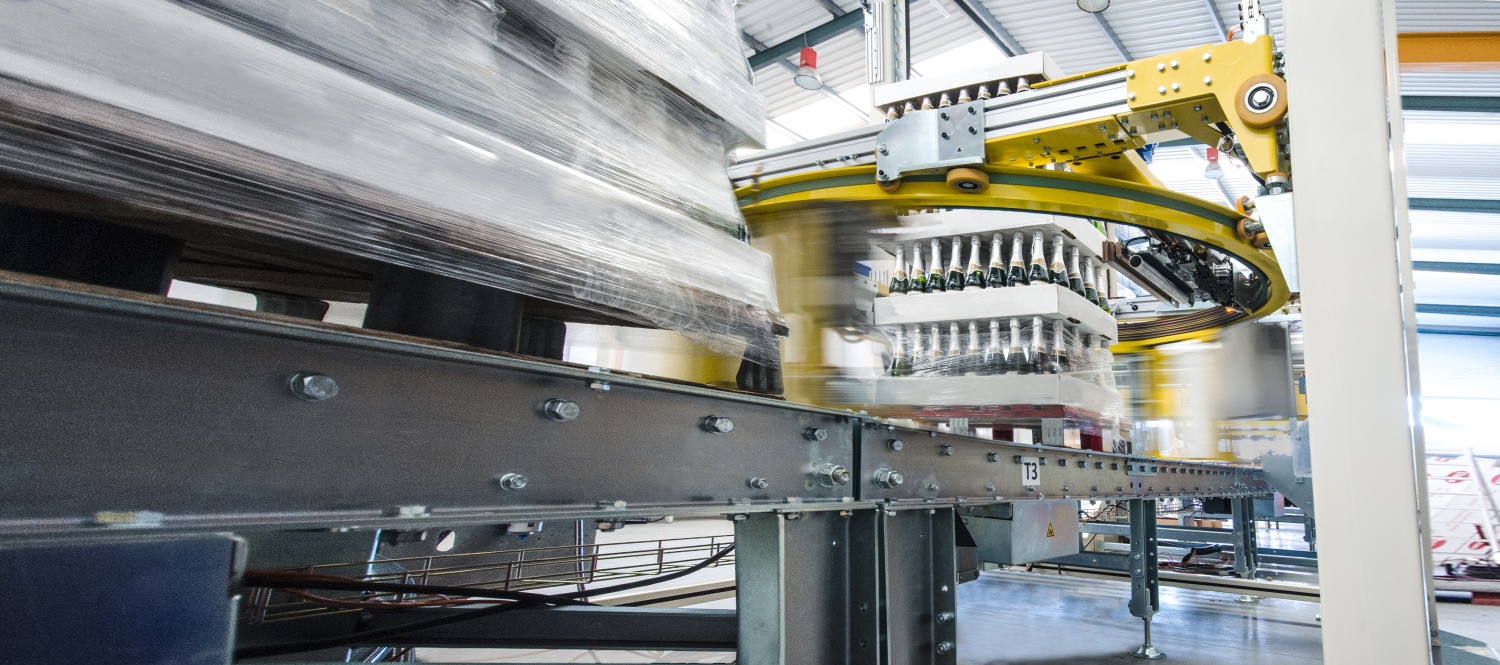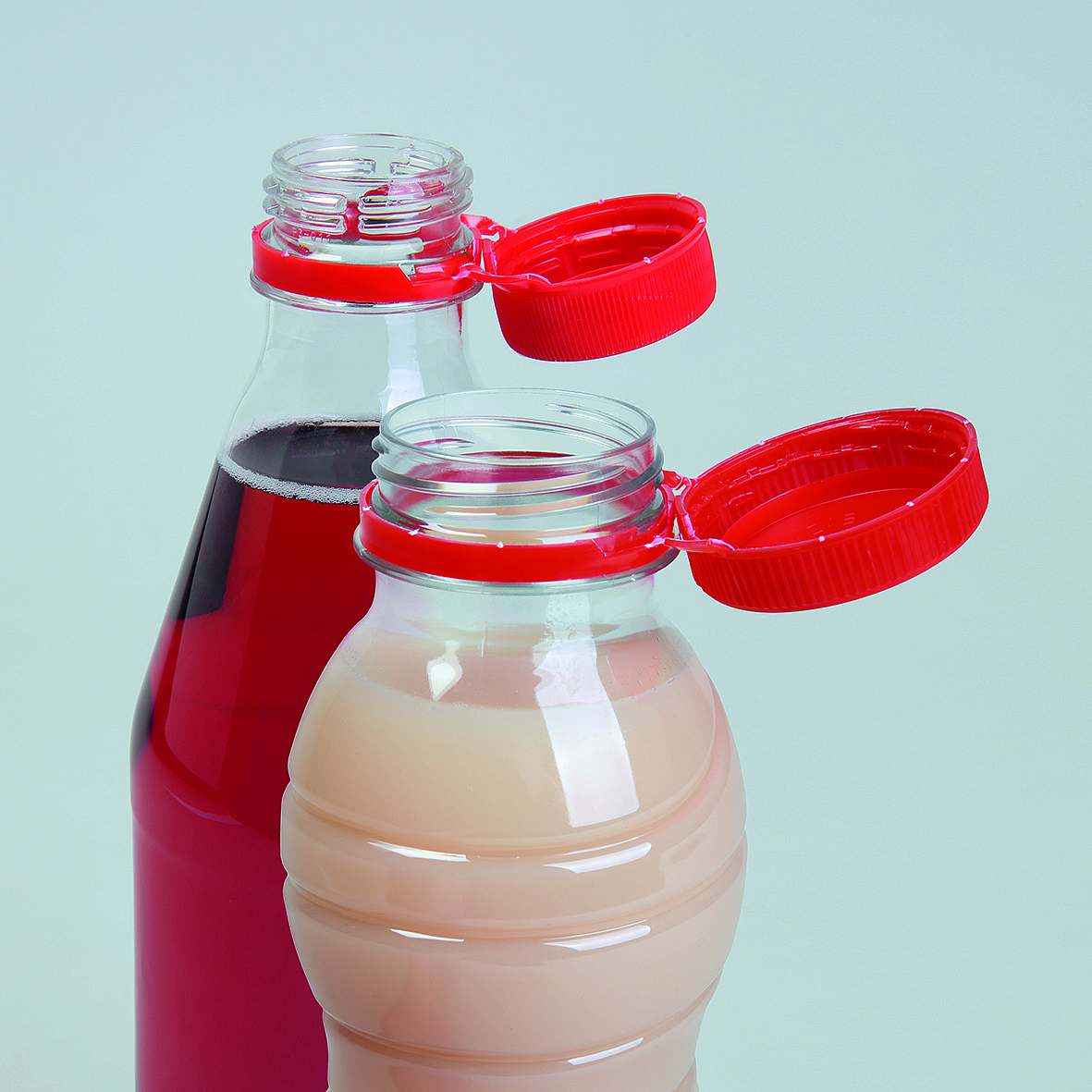NEWS
Polyethylene Terephthalate (PET)
 发布时间 : 2023-02-16
发布时间 : 2023-02-16  浏览次数 : 776
浏览次数 : 776 A look ahead to Interpack 2023 shows: PET is still one of the most popular packaging materials for the beverage industry in 2023. However, the plastic not only protects sweet or healthy liquids, it is also a steadfast companion during transport, for example of glass bottles.
27th Jan 2023
Some beverages simply come with classic packaging. We usually buy beer or wine in a glass bottle, milk in a carton and soft drinks in a PET bottle. Over the last few years, however, customers have become ever more critical, and sustainability issues have grown in importance for the beverages sector. Plastics especially now have a bad reputation – which is often undeserved. How well a type of packaging fares when looking at the ecological balance depends on many different factors. Experts therefore are hesitant to give general advice.
Glass bottles are neutral in taste, but also fragile and heavy. However, they are more suitable for multiple uses than any other type of packaging. PET bottles, too, can be refilled several times and then recycled. They are shatterproof and notably lighter than glass bottles. Plastics, however, have had a bad reputation with customers for some time now, in spite of the very high recycling quota for PET beverage bottles in Germany at more than 94 percent. Beverages in aluminum cans still enjoy popularity.
Better Safety on the Road
In order for bottles, cans and beverage cartons to reach their point of sale without damage, they need proper safety measures during transportation. Usually, thin stretch wrap is used for stable packing on a pallet. For this purpose, machine manufacturers like Interpack exhibitor Mosca (hall 11, booth D56) offer strapping machines for pallets and stretch winders.
Depending on the type of packaging, safety requirements for the pallet can be very different. Cans must be protected against warping, glass bottles against breaking. In order to transport lightweight, empty beverage cans, for example, they not only need to be held in place from the side or from the top, but also require light pressure to be kept secure on their way to the beverage bottlers.
A new strapping machine for pallets by Mosca creates the necessary pressure on the empty cans through vertical strapping. The system uses sustainable PET straps made from recycled materials and packages/wraps up to 61 pallets per hour for transport, without wasting resources. As a narrow strip of plastic is enough to secure even the heaviest pallets, the use of material and the carbon footprint are kept to a minimum.
Hygiene Is a Priority
Hygiene is important for the new aseptic filling system developed by Sidel (hall 13, booth B47) for the growing market for sensitive beverages in PET bottles. The integrated stretch-blow-fill-seal solution is a further development of Aseptic Combi Predis technology, intended to help bottling companies serve the growing market for drinks with a long shelf life, like for example juice, fruit beverages, soft drinks, isotonic drinks and tea, as well as liquid dairy products.
The demand for these products, says Sidel, is expected to reach a volume of 192 billion units by 2024, which is an increase of 44 percent compared to 2011. Sensitive products are said to represent 55 percent of the market for non-alcoholic beverages, and the predicted growth of this segment (annual growth rate of 2.3 percent from 2019 to 2025) is higher for PET bottles than for other materials.
Flexible Response to Demands
Regarding the packaging of their products, bottling companies today face multiple challenges, both economic and ecological. On the one hand, they are subject to pressure from growing time constraints and rising costs, on the other hand, the beverages industry is under scrutiny from the legislature right now – especially regarding recycling quotas and carbon emissions.
Considering these developments, Interpack exhibitor KHS (hall 13, booth A31) is offering their customers a large portfolio of adjustable block solutions, especially for filling PET bottles, among them a new, modular platform that can be customized and expanded. First used for filling glass bottles in 2020, the machines now also fulfil customer wishes for adaptability and a guaranteed future when it comes to plastic bottles. “Nobody can say which trends the industry will follow in five years”, says Manfred Härtel, Product Manager Filling at KHS.
“This is the reason we made our platform modular, so it can be fitted any time for different drinks or PET containers, depending on the demands of the market.” This way, additional individual components can be bought at a later time and integrated into existing solutions with a minimum of effort.
In addition, many improvements in construction already help to save energy. The new filler allows filling temperatures to rise to 24 degrees Celsius, which lowers the investment and maintenance costs for energy-intensive cooling technology. At these temperatures there is also no condensation of water, which would have to be dried using a lot of energy before further packaging in foil or cardboard.
“Tethered Caps” Soon to Be Mandatory
Caps and valves are often a problem when it comes to littering and the recycling of plastic bottles. EU legislation is therefore making the use of closures that are permanently connected to the bottle mandatory from 2024. Many manufacturers have already reacted and developed so-called “Tethered Caps”.
Earlier than necessary, manufacturers of beverages are already following the EU guideline, among them Coca-Cola: The corporation already introduced their attached caps in 2021, and has been expanding them to an increasing number of PET single use bottles. Little has changed for consumers: The opening mechanism is the same, and the cap which is now attached to a safety ring can still be moved round the neck of the bottle as desired or secured in a specific position. By January 2024, the beverage corporation aims to have successively converted all its German plants. At the end of 2021, the bottling plant in Dorsten, North Rhine-Westphalia, was the first to make the change.
Manufacturers assume that the new caps will only resonate well with consumers if the handling is right. Consumer studies reveal that a “Tethered Cap” by Bericap (hall 10, booth E67) did well because of its intuitive handling, the 180-degree-opening and its hygienic advantages. An early switch to “Tethered Caps” can allow beverage companies to increase the attractiveness of their products in the market.
Intelligent Caps
Freshness indicators are helpful for the beverages sector as well. United Caps (hall 10, booth D67) and the start-up Mimica have marketed a clever cap solution that includes a freshness indicator. The “Touchcap” changes its surface from even to uneven when a product is no longer fit for consumption. This is possible thanks to a gel in a special label that can change its structure. The cap can be recycled and consists of a lid base and a closing cap.
After filling, this is mounted by a specialized machine that, like other modules – for example for labelling or stretch wrapping – can be seamlessly integrated into production. It is the consumer who activates the effect by opening the lid for the first time by twisting the cap. Currently, there is a pilot project in the UK with an orange juice brand.






 +86 18114597360
+86 18114597360